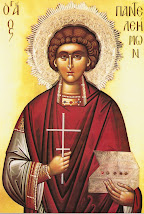THE REASONABLE RESURRECTION WITNESS
By Gregory C. Atkin
By Gregory C. Atkin
Since the nineteenth century there has been an unreasonable erosion of faith in the Virgin Birth of Christ and of the Glorious Resurrection.
Challenging the apathy towards the Resurrection is the fact that the Holy Orthodox Church has devoted its apostolic readings in the Divine Liturgy to the writings of the Evangelist Luke in his second book to Philotheus, the Acts of the Apostles. I mention this because these acts of the Church resulted from her experience of the Lord’s Glorious Resurrection. Bearing this in mind, it will not surprise you that many of the quotations in this article have their origin from this book.
Challenging the apathy towards the Resurrection is the fact that the Holy Orthodox Church has devoted its apostolic readings in the Divine Liturgy to the writings of the Evangelist Luke in his second book to Philotheus, the Acts of the Apostles. I mention this because these acts of the Church resulted from her experience of the Lord’s Glorious Resurrection. Bearing this in mind, it will not surprise you that many of the quotations in this article have their origin from this book.
Regarding faith in the rising of the Lord, certain biblical passages come to mind. The Apostle Paul told the Corinthians, “...if Christ has not been raised, then our preaching is in vain, and your faith is in vain” (I Corinthians 15, 14). The apostle knew that Saint Stephen, the Archdeacon and Protomartyr, “...did great wonders and signs among the people” (Acts 6, 8). Stephen was tried before the High Priest and his council in Jerusalem (vide. Acts 7, 1), and made an outstanding defence in support of what he knew and believed. Writing in the Acts of the Apostles, the Evangelist Luke tells us that the council were enraged by Stephen’s defence of the faith and of what he knew. The relevant passage states, “Now when they heard these things they were enraged, and they gnashed their teeth against him. He, however, full of the Holy Spirit, looked into Heaven and saw the glory of God, and Jesus standing at the right hand of God; and he said, «Look, I see the Heavens opened, and the Son of Man standing at the right hand of God»” (Acts 7, 54-56).
In the account of the resulting stoning of Stephen, we find Saul, later to be called Paul the Apostle, present at this execution and receiving adulation from the people (vide. Acts 8, 58).
There are pertinent questions to be asked about this.
1. Why would Stephen lay down his life if he thought the Resurrection was untrue?
2. Why would the Early Christians open themselves to the ridicule of many by preaching something which could not have been proven except that many new the truth of these things?
3. Why would Paul, after witnessing the cruel treatment of Stephen, endanger his own life by following Stephen’s example even to the point where it eventually led to his own execution for this faith?
We know of Paul’s conversion on the road to Damascus, soon after the stoning of Stephen, when the Lord appeared to him (vide. Acts 9, 3-8). The consequential blindness that made it necessary for those with him to take him by the hand and lead him into Damascus (vide. Acts 9, 8), and the restoration of his sight at the hands of Ananias (vide. Acts 9, 17), quite clearly shattered the illusion that he was doing God’s work in threatening and murdering Christians (vide. Acts 9, 1). He nevertheless knew that there would be someone to take his place in the attempted demolition of Christians and the Early Church and yet he disregarded this risk.
The Apostle John was also placing himself at odds with the Jewish religious authorities (vide. John 21, 24) although, by the time that he had written his Gospel, Jerusalem had been razed to the ground. Again, what Luke tells us is that about a hundred and twenty followers were standing around Saint Peter when he gave his address following the Lord’s Ascension (vide. Acts 2, 15).
Three questions were asked earlier, the answers to which speak for themselves. Here is another one:
The Apostle John was also placing himself at odds with the Jewish religious authorities (vide. John 21, 24) although, by the time that he had written his Gospel, Jerusalem had been razed to the ground. Again, what Luke tells us is that about a hundred and twenty followers were standing around Saint Peter when he gave his address following the Lord’s Ascension (vide. Acts 2, 15).
Three questions were asked earlier, the answers to which speak for themselves. Here is another one:
Why, so soon after the Lord’s Ascension, were “more than ever believers” “added to the Lord, multitudes both of men and women” (vide. Acts 5, 14)?
Undoubtedly, so many saw the miracles performed through the Apostles, and they would have been well aware of Jesus’ ministry. Finally, and again from the Acts of the Apostles, we note that around three thousand accepted the apostolic teachings and were baptised (vide. Acts 3, 41).
The overarching question remains, “Who would willingly suffer and die for something that is untrue”?
[Spoudagmata 2009, pp. 94-95]






































No comments:
Post a Comment